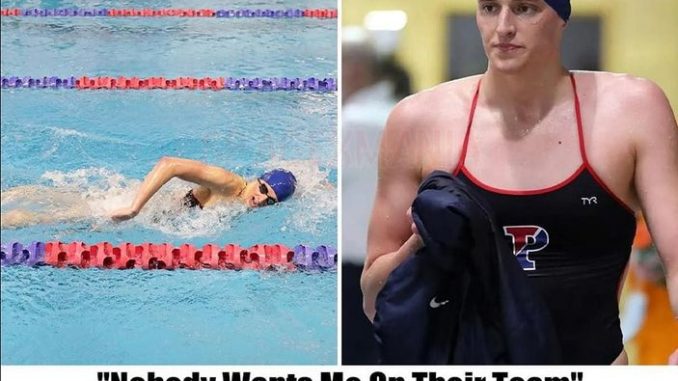
Lia Thomas, a well-known swimmer, made the unexpected and intensely emotional decision to give up competitive swimming, citing an emotionally taxing journey and a sense of loneliness in a statement posted yesterday. Thomas, a transgender athlete, has served as the focal point of many discussions about fairness, gender, and the integrity of competition in women’s sports.
Lia’s statement reads: “The waters have been turbulent, not due to the physical demands but the constant battle to seek acceptance and fairness in a sport I adore. No athlete should feel isolated or singled out for their identity rather than recognized for their achievements.”
This choice was made following months of acrimonious discussions, petitions, and arguments about transgender athletes competing in women’s sports. She has shed light on the difficulties faced by transgender athletes both inside and outside of their chosen sporting arenas as a result of her trip through the turbulent waters of public scrutiny, policy discussions, and ethical issues.

Supporters of Thomas contend that her retirement from professional swimming is a big loss for the sport and highlights the need for a nuanced, compassionate, and inclusive strategy for athletes navigating their careers amidst difficult identity discussions. Meanwhile, her detractors have scrutinised her accomplishments and linked them to alleged physiological advantages.
The sports world is forced to look into the reflected waters of ethical, biological, and societal factors surrounding transgender athletes as we negotiate the fallout from Thomas’s withdrawal. The question is: How will this moment influence how competitive sports develop in the future, and how will the conversations impact how future athletes’ experiences are entangled with one another’s stories?
Leave a Reply